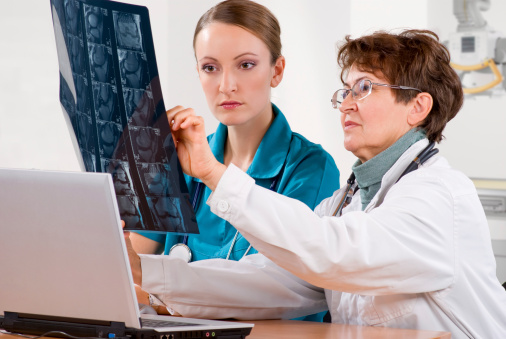A recent post on this blog by Dr. Yvette Calderon, associate dean for diversity enhancement at Albert Einstein College of Medicine, described the importance of mentors and role models as she navigated her way through the unfamiliar territory of medical school and residency in the 1980s. Now, one of her central roles is to act as a mentor to our medical students.

It is well documented in academic medical literature that mentoring is a critical component of medical education.
There are numerous advantages for students:
- Mentoring is a highly effective method of teaching professionalism.
- Hands-on training supervised by mentors can increase students’ interest in specific specialties.
- It increases students’ efficacy in the research arena.
But mentoring doesn’t help only the students; the mentors gain from it as well.
Here are some of the benefits to mentors:
- In research settings, scientific productivity increases when faculty researchers collaborate with medical students.
- Mentoring can enhance a physician’s career success and satisfaction.
- Offering guidance as a mentor can also increase confidence in skills.
At Einstein, these interests are reflected in a support network that includes mentoring programs for students. Einstein’s alumni association and its office of student affairs sponsor an alumni and faculty mentoring program that matches students with professionals in fields that interest them. This is an opportunity for faculty and alumni to share their experiences and expertise, while students explore their career interests and learn about the many roles physicians can play in the workplace and the community.
A major contributor to our support system is Einstein’s Peer Mentor Network. This program’s mission is to create a community of students who listen to and share experiences and advice with one another, connecting their peers with what they need in order to thrive. Peer mentors are committed to their fellow students’ well-being and to helping them manage stress in productive and healthy ways.
Peer mentors at Einstein are available for individual consultations—or simply for conversation. The mentors are trained by faculty in communication skills and are familiar with the resources available for student support. Peer mentors at Einstein also participate at the community level. They have developed a program for entering students called First Year 101, which helps students understand some of the initial challenges of medical school and educates them about the neighborhood and about resources available at Einstein. During this time of year, they are being trained to help their fellow students learn relaxation and mindfulness techniques, which help ease the strains of medical school and beyond.
Being a medical student can sometimes be as anxiety provoking as it is rewarding. There’s a sea of information to absorb and complex experiences and emotions to negotiate. All of these can appear as obstacles to a student’s goals. Through our mentoring programs, mentors and students support one another through the odyssey of medical training.

